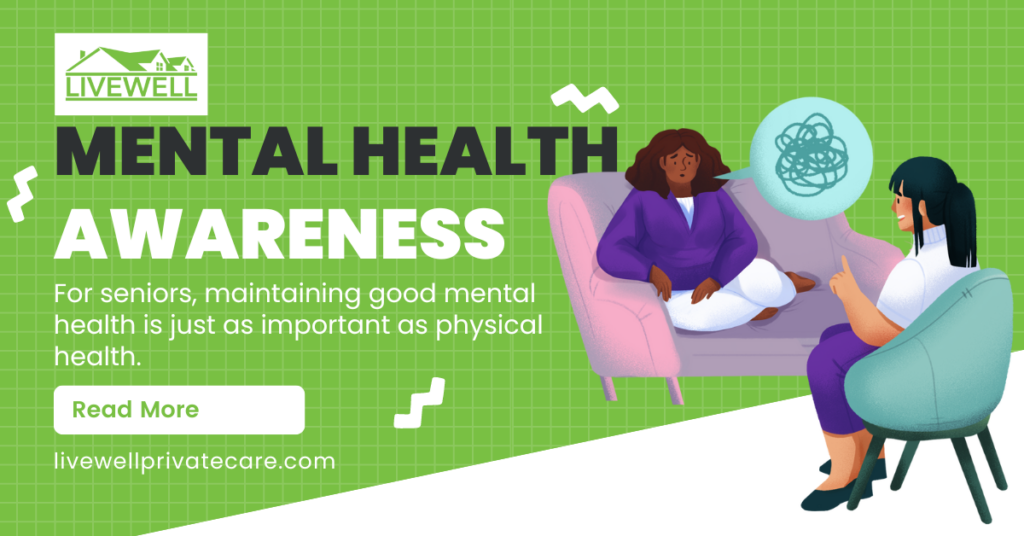Healthy Aging Month: Mental Health Awareness for Seniors

As we celebrate Healthy Aging Month, it’s essential to highlight a key component of overall well-being: mental health. For seniors, maintaining good mental health is just as important as physical health. Unfortunately, seniors are often at risk for isolation, depression, and cognitive decline, making its awareness crucial.
Here’s why mental health matters for seniors and how simple activities can significantly improve their emotional and psychological well-being.
Why Mental Health Matters for Seniors
Mental health impacts how we think, feel, and act at every stage of life. For seniors, maintaining mental well-being is critical as they face life changes such as retirement, loss of loved ones, or reduced physical abilities. Without proper attention to mental health, these challenges can lead to feelings of loneliness, anxiety, or depression.
Moreover, research shows that mental and physical health are interconnected. Seniors with strong emotional well-being are more likely to stay physically active, manage their health conditions better, and enjoy an overall improved quality of life.
Boosting Mental Health with Socializing and Hobbies
-
Socialization
One of the most effective ways to maintain this is by staying socially active. Regular social interaction helps reduce feelings of isolation and keeps the mind sharp. Whether through family gatherings, community events, or regular meetups with friends, socializing provides a sense of belonging and connection.
-
Engaging in Hobbies
Participating in hobbies can provide mental stimulation and joy. Activities like reading, painting, gardening, or even learning new skills can give seniors a sense of purpose and accomplishment. Hobbies encourage creativity, reduce stress, and improve mood, all contributing to better mental wellness.
-
Staying Physically Active
Physical activity isn’t just good for the body—it’s great for the mind too. Regular exercise releases endorphins, which boost mood and relieve stress. Activities like walking, yoga, or gentle stretching can help seniors stay physically and mentally fit.
-
Cognitive Exercises
Keeping the brain active through cognitive exercises like puzzles, memory games, or learning new skills can help slow cognitive decline. Mental challenges stimulate brain activity, keeping it engaged and healthy.
The Role of Support Systems
Family, friends, and caregivers play vital roles in supporting seniors’ mental health. Encouraging open conversations about emotions, providing companionship, and offering support during tough times can make a significant difference in a senior’s mental well-being.
In Conclusion, mental health is a key part of healthy aging. By staying socially connected, engaging in hobbies, and keeping the brain and body active, seniors can improve their mental health and enjoy a more fulfilling, happy life. At Livewell Private Care, we’re dedicated to supporting seniors in their journey toward mental and emotional wellness. Let’s prioritize our health during Healthy Aging Month and beyond.
If you or a loved one need mental health or senior care support, contact us today to learn how we can help.
